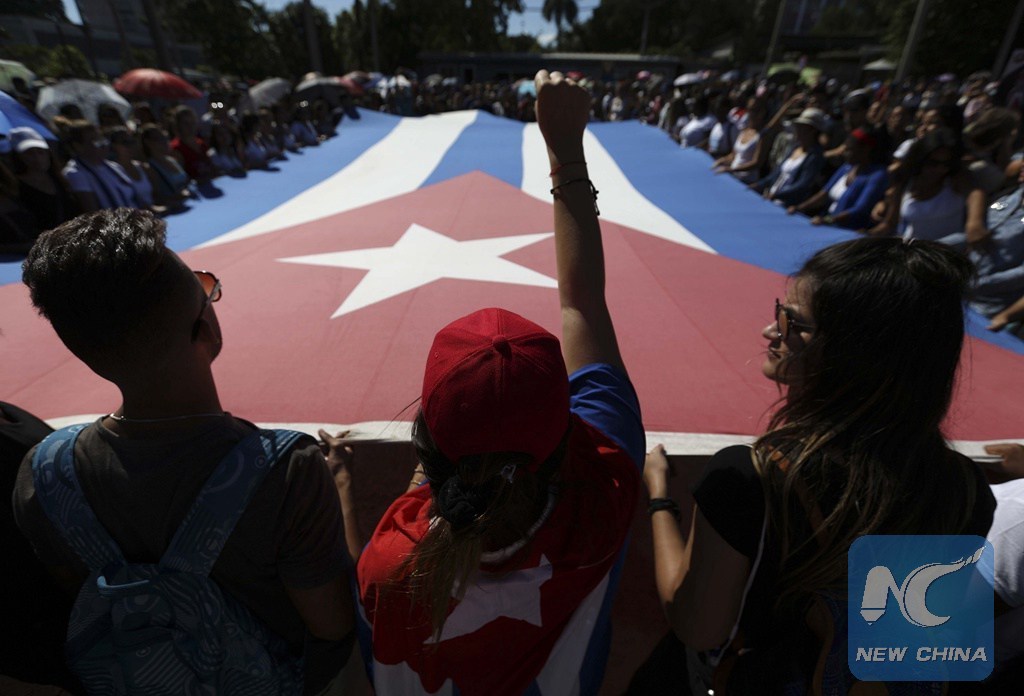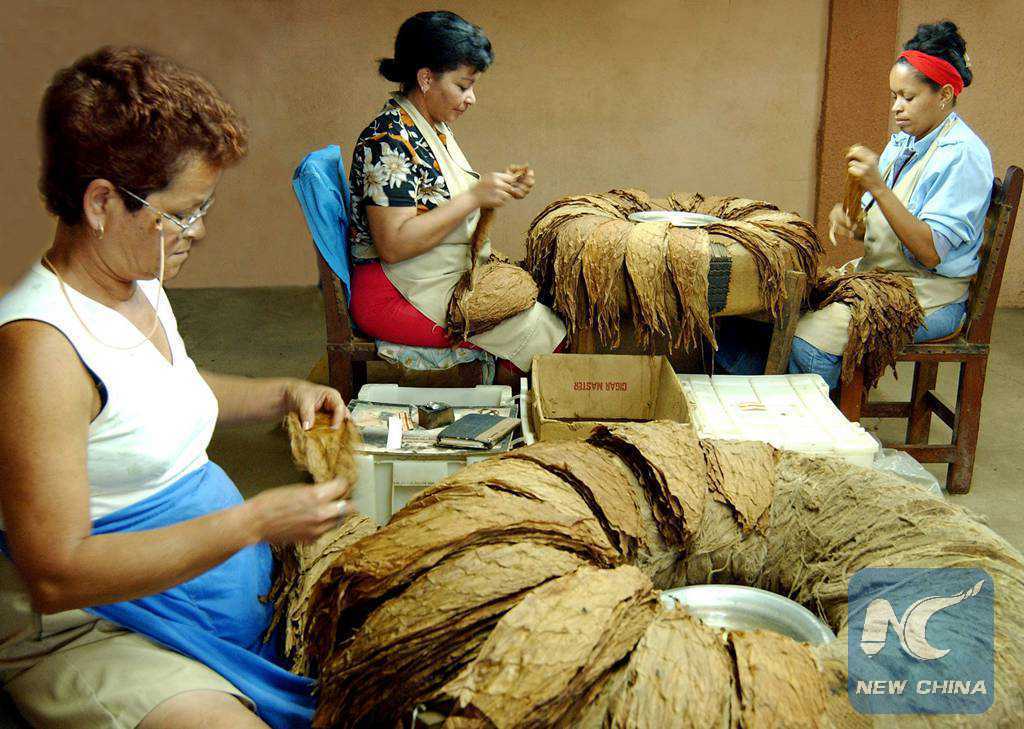
Students hold a Cuban national flag while waiting to pay tributes to Cuban revolutionary leader Fidel Castro at the Revolution Square in Havana, capital of Cuba, on Nov. 28, 2016. (Xinhua/David de la Paz)
by Raimundo Urrechaga
HAVANA, Dec. 27 (Xinhua) -- President Raul Castro on Tuesday said the Cuban economy is expected to improve in 2017 after a 0.9 percent contraction this year due to shrinking exports and economic troubles affecting the nation's top trading partners, especially Venezuela.
"The Cuban economy will resume its upward path in 2017 and grow moderately by around 2 percent, with strong growth in the sugar industry and tourism," Castro told a plenary session of Cuba's unicameral parliament.
"The Cuban economy didn't collapse as many international media outlets predicted earlier in the year," said Castro during his traditional end-of-year speech in parliament.
However, Castro admitted that the economy was hit hard as there were drastic cuts in imports and investment in the second half of the year.
The tense economic situation is compounding the severe financial and infrastructure losses caused by Hurricane Matthew, which hit the eastern tip of the island in October, Castro said.
More than 8,000 homes were damaged or destroyed, and schools, warehouses, hotels and other institutions were affected by the most powerful hurricane in a decade.
The "harmful effects" of the U.S.-led trade embargo continued to hamstring the economy, despite numerous measures taken by the White House to relax the sanctions and restrictions.
Even though U.S. President Barack Obama in March lifted a ban on Cuba using the U.S. dollar in its international transactions, Havana has not been able to make a single payment or cash deposit in that currency, said Castro.
Still, dynamic sectors in Cuba are expected to help modestly boost economic growth next year.

Women work in a tobacco factory at San Antonio de los Banos, La Havana, Cuba, Feb. 28, 2012. (Xinhua/Joaquin Hernandez)
Castro urged government officials to "energize" foreign investment, which so far accounts for only 6.5 percent of the nation's spending next year.
He called for speedy reform to allow greater foreign investment and overcome the "obsolete and prejudiced mentality" against foreign capital.
Since passing a law more than two years ago to bolster foreign investment, Cuba has approved foreign-financed projects worth only 1.3 billion U.S. dollars, missing the target of 2 billion dollars a year.
"We are not heading toward a market economy or a capitalist system, but we must not block what we can do within the framework of existing laws," he said.
Regarding the recent death of his brother and predecessor Fidel Castro, Raul said the best tribute to Fidel would be to apply the revolutionary ideals he championed.
Despite financial constraints, Cuba's 2017 budget allocates funds to maintain social services at the same level as in 2016, which will ensure free health and education services as well as other social benefits for the people, according to Economy Minister Ricardo Cabrisas.

